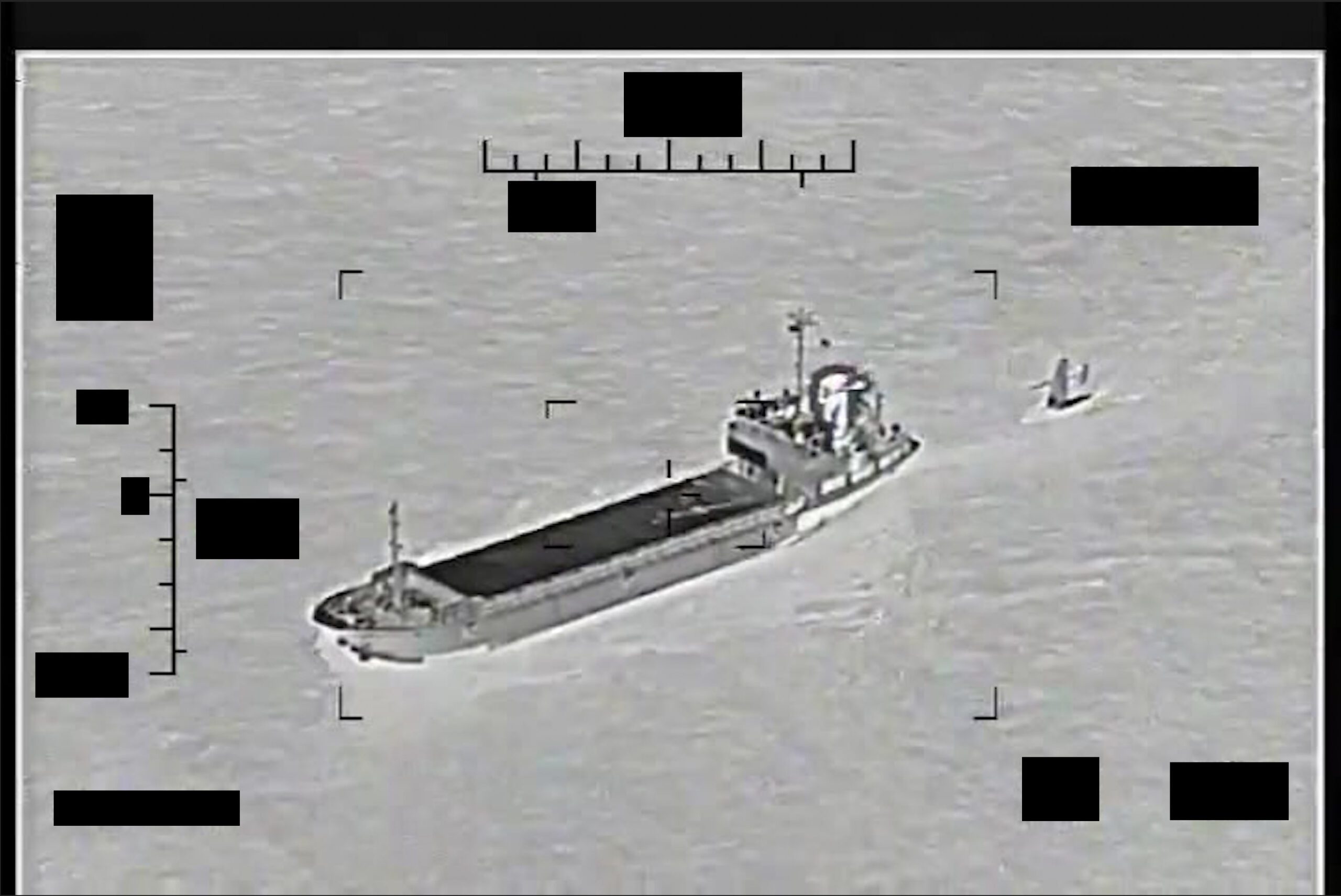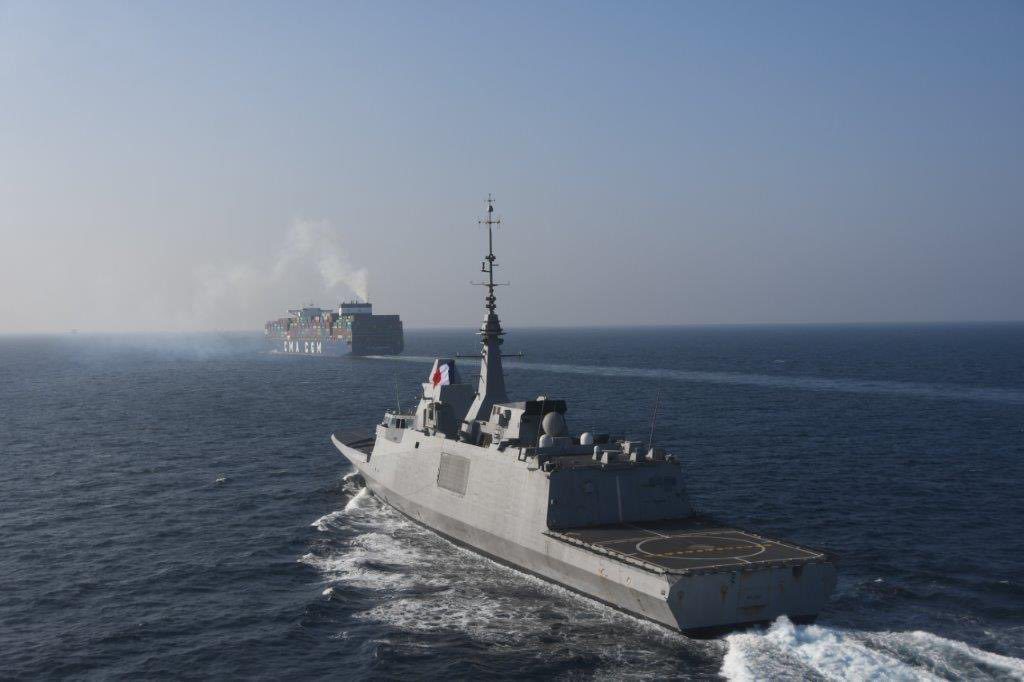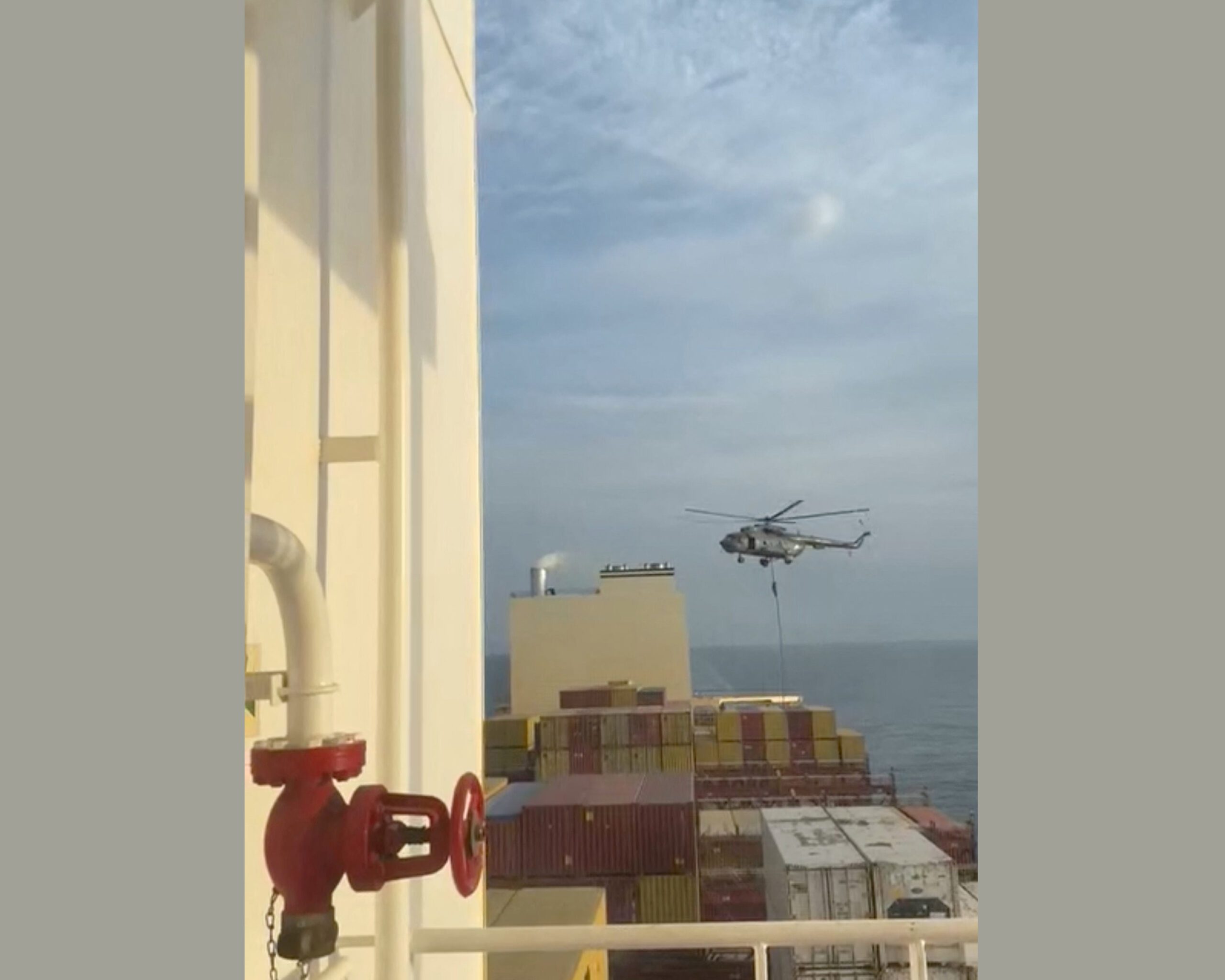by James Stavridis (Bloomberg Opinion) Virtually unnoticed amid alleged drone attacks on the Kremlin, a looming Ukrainian spring offensive and aggressive Chinese military activity around Taiwan, another region is heating up. Two massive oil tankers, the Advantage Sweet, flagged to the Marshall Islands, and the Niovi, flagged to Panama, were recently seized by maritime elements of the Iranian Revolutionary Guard.
Both are held by the Iranians and anchored off the coast of Iran near the Strait of Hormuz at Bandar Abbas, the key Iranian naval base in the Arabian Gulf. While the seizure of just two ships may not seem like a crisis, it may be the beginning of a cycle in which the US Navy is drawn, yet again, into a risky mission to protect commercial shipping in the Gulf from Iranian aggression.
The Tehran government has issued a statement claiming that Advantage Sweet, seized on April 27, had struck another vessel. No such collision is apparent from analysis of the global tracking system and the owners deny it. The ship was carrying crude oil from Kuwait on behalf of American oil giant Chevron. This seizure appears to be the Iranian response to the recent legitimate apprehension, for sanctions violations, of a load of Iranian crude in the vessel Suez Rajan off the coast of Singapore. Iran will likely attempt to negotiate the release of Advantage Sweet in a trade for the oil in Suez Rajan.
The case of the Niovi seizure on May 3 is murkier. The ship appears to have been taken in a dispute stemming from oil operations in the shadow market. Iran claimed the seizure was in response to a court order in Tehran stemming from a commercial disagreement. Like Advantage Sweet, the Niovi is swinging on an anchor awaiting its fate.
Whatever the actual causes of these two seizures, we’ve seen this playbook before. At a recent meeting of the Greek shipping company Onassis, upon whose board I sit, our operations managers were closely following what some would categorize acts of piracy. Additionally, last May Iran seized two Greek tankers, Prudent Warrior and Delta Poseidon, and held them until November. This was surely retaliation for the Greek government’s impoundment of Iranian oil from another vessel, Lana (formerly Pegas) in Greek waters. The two governments eventually negotiated what was essentially a swap.
The Iranians have used these tactics repeatedly for decades whenever they become dissatisfied with global events or angry when sanctions are applied to their operations anywhere in the world. Normally, the seizures are accompanied by threats to “shut down” the Strait of Hormuz at the southern end of the Gulf, through which sails nearly 40% of the world’s oil.
During my Navy career, I spent several years in total patrolling the waters of the Arabian Gulf, and have participated in multiple operations involving Iran. Notably, in the late 1980s, I deployed on a then brand-new Aegis cruiser, USS Valley Forge, as part of a lengthy operation called Ernest Will. The missions entailed re-flagging Kuwaiti merchant ships with US flags, and then escorting them fully loaded from Kuwait down the Gulf and out through the Strait of Hormuz on their way into the Arabian Sea.
Eventually, the US Navy conducted several successful attacks on Iranian ships, called Operation Praying Mantis, in response to their actions in the Gulf, which ranged from seizures of merchant ships to mining the Strait.
We could be on such a collision course again. If Iran continues to seize commercial vessels with impunity and zero justification, the international community will have to respond.
The warships of the US Fifth Fleet are based in Bahrain for exactly this type of contingency, and include guided-missile destroyers and cruisers, as well as nuclear aircraft carriers on a rotational basis. Minesweepers are available should the Iranians resort to sea mines.
And the Air Force has a robust presence in the Gulf at Al Udeid air base in Qatar, the largest US military concentration in the Middle East and home of the powerful 379th Expeditionary Air Wing.
America’s allies also frequently deploy warships to the region, and would likely be willing to participate in convoy operations as needed — especially the British, who have deep experience in the region. A Royal Air Force Expeditionary Group is also based out of Al Udeid and constantly operates with the US forces stationed there.
While it’s always important to let diplomacy play out a bit further, simply allowing Iran to seize commercial shipping operating legally as bargaining chips to avoid sanctions won’t be tolerated. The sooner the US and its allies communicate that directly and clearly to Tehran, the better. Or else we may be back in the convoy business again in the Middle East.
James Stavridis is a Bloomberg Opinion columnist. A retired U.S. Navy admiral, former supreme allied commander of NATO, and dean emeritus of the Fletcher School of Law and Diplomacy at Tufts University, he is vice chairman of global affairs at the Carlyle Group. He is the author most recently of “To Risk It All: Nine Conflicts and the Crucible of Decision.” @stavridisj © 2023 Bloomberg L.P.
Unlock Exclusive Insights Today!
Join the gCaptain Club for curated content, insider opinions, and vibrant community discussions.

 Join The Club
Join The Club













